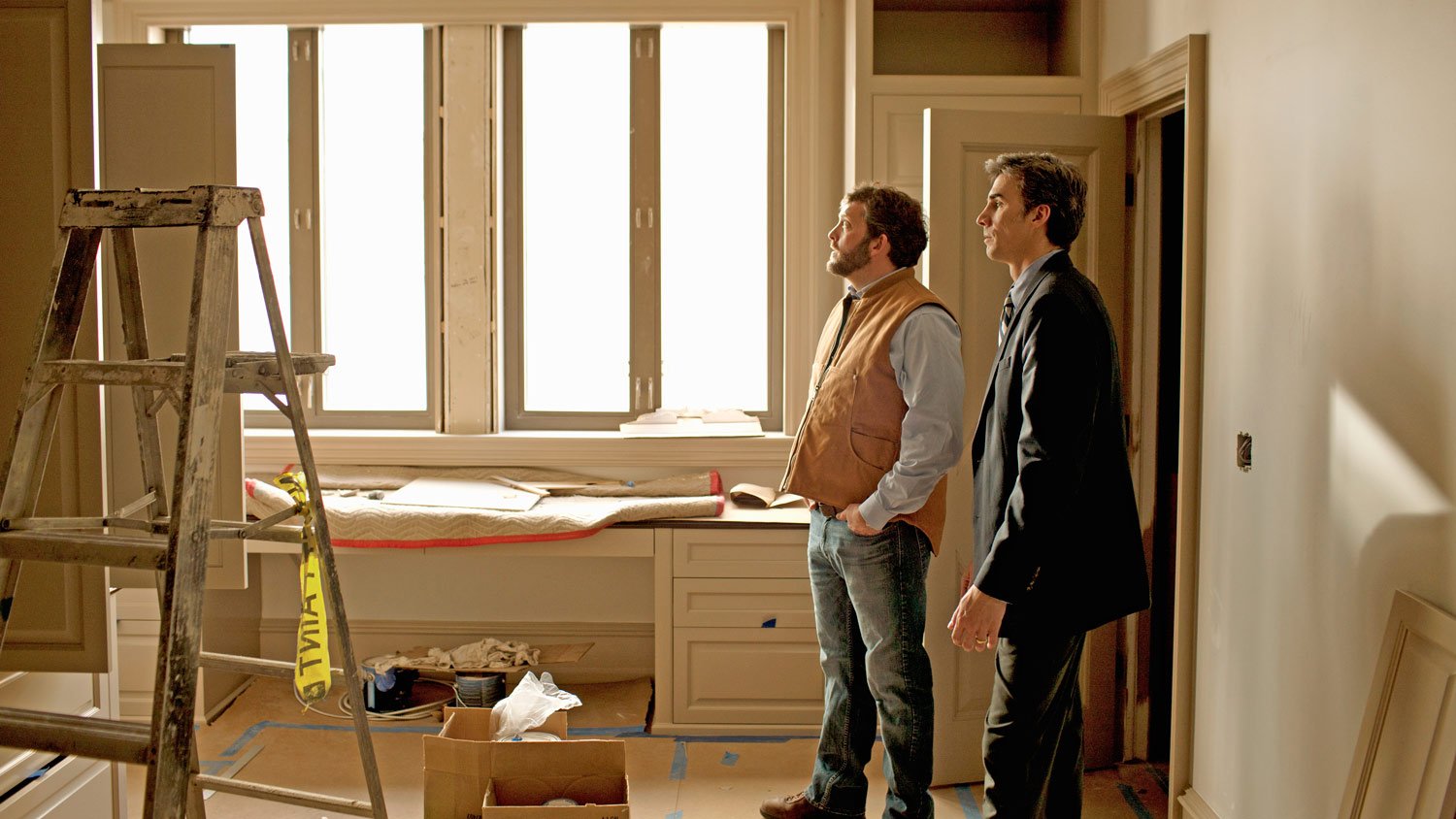Architect vs. Contractor: Which Should You Hire?
Make sure you have the right pros on your project team


Architects are responsible for designing and overseeing a build.
Contractors execute the building plans.
Architect fees average 5% to 20% of the total project cost.
General contractor fees average 10% to 25% of the total project cost.
Building or remodeling your home can be a big project with a lot of people involved, and each has their own role to play. When deciding if you need a contractor versus an architect, it helps to know what each is responsible for and which one you’ll need for your build. Learn the difference between these two pros and why you might need both, depending on your project.
Architect vs. Contractor: Key Differences
Architects and contractors are two often vital roles when building or remodeling a home. You won’t always need to decide whether to hire an architect or a general contractor—in many cases, you’ll need both. Architects are involved in building projects from beginning to end, responsible for the design, artistic vision, engineering aspects, material choices, technical specs, and more. General contractors take those technical designs and execute the actual build, turning blueprints into a building.
| Criteria | Architect | Contractor |
|---|---|---|
| Job scope | Design, technical specs, total job oversight | Construction, design implementation |
| Licensing | Required in all states | Varies from state to state; not required in all states |
| Cost | 5% to 20% of project cost | 10% to 25% of project cost |
What Is an Architect?

An architect is responsible for turning a client’s vision for their home into a workable design. They will work with the client at all stages of the process, creating blueprints, determining the best materials to use, and ensuring that the design adheres to local codes and regulations. They will sometimes help homeowners choose and negotiate with general contractors, too, so they’re involved for a longer period than a contractor. Architects typically have a bachelor’s or master’s degree, they must complete an internship, and they must be licensed by their state.
| Pros | Cons |
|---|---|
| Customizes design to client’s vision | Adds to project cost |
| Oversees the entire design and build | Custom designs take longer than builders’ models |
| Acts as liaison with contractor | Requires specialized licensing and training |
When to Hire:
New, custom builds
Large remodeling projects
Making large changes to existing plans
Pros of an Architect
Hiring a local architect for a new build or large remodeling project ensures that the entire process will be overseen by someone who deals with both the big picture and the small details. An architect will customize major aspects of your design, including the floor plan and structural components, and they have the ability to make changes to stock plans, all while following applicable codes and regulations. Architects often work with specific contractors so they can coordinate and communicate with the contractors during the construction process.
Cons of an Architect
Working with an architect will add to the cost of your build—5% and 20% of your total—due to the extensive education and licensing requirements. It’s a good idea to build the cost of an architect into your budget, though, so that you have the peace of mind that your project will be planned and executed correctly and that someone is available to handle any problems as they arise.
Since architects take such a hands-on approach to your ideas, their work can be time-consuming and add weeks or even months to your project timeline.
What Is a Contractor?

A general contractor is responsible for following the plans drawn up by an architect or structural engineer and executing the build. A general contractor will often work with and oversee subcontractors for various aspects of building, including plumbing, electrical, and more. The contractor will ensure your home is built to the specifications laid out in the blueprints, and they will usually be on-site throughout the entire build to keep the project on track. Hiring a general contractor is often a necessary part of building or remodeling your home.
| Pros | Cons |
|---|---|
| Manages and supervises all aspects of a build | You may pay a markup on materials and services |
| Experienced in completing building projects | May work with inexperienced subcontractors |
| Ensures construction follows the design and local codes | You’ll have less control over the project |
When to Hire:
New construction
Any project too big to DIY
Projects that involve multiple specialties (framing, plumbing, roofing, electrical, etc.)
Pros of a Contractor
Hiring a general contractor means that all of the construction aspects of your project will be managed and supervised by someone who is experienced with home builds like yours. They will make sure everything is in compliance with local codes and regulations and will work with the architect throughout the project, keeping you from having to understand and solve complicated design or construction problems. They will also ensure your project stays on track and is completed within a reasonable timeframe.
Cons of a Contractor
Contractors are usually paid a percentage of the total project cost, which can add to your budget, and you’ll pay a premium for getting materials and subcontracted services through your general contractor. You also may not have control over which subcontractors your contractor works with, so be sure you check that they’re bringing on experienced professionals who they’ve worked with on other projects.
Architect vs. Contractor
While you’ll often need to hire both an architect and a general contractor for new home builds and large remodeling projects, there are some differences to note that could help you decide that just one is necessary.
Price: Architect
Architect fees typically run about 5% to 20% of the total project cost, while contractors charge 10% to 25% of the project cost. An architect will usually cost less than a contractor, but keep in mind that you’ll need to pay someone to build your home if you don’t have the experience to DIY it. Some architects are willing to act as general contractors to coordinate with subcontractors to get all of the work done, but in those cases, your architect will charge far more.
Scope of Services: Tie
While architects and contractors provide very different services, both are necessary for new construction. Both offer project management, problem solving, and an assurance that your home design and build are in line with your vision and are up to building code.
Licensing: Architect
All architects in the United States need to be licensed by their state after completing at least a bachelor’s degree and an internship. State licensing registries are a good way to find an architect for your project. Licensing and registration requirements for contractors vary by state, and not all states require contractors to be licensed.
Code Compliance: Tie
Both architects and contractors are well-versed in local codes and regulations and will ensure that your project complies with all necessary codes from design to construction. Both pros can handle building permit costs and safety regulations to make sure the job is completed properly.
Education and Training: Architect
Architects must hold at least a bachelor’s degree, and in some states, they must also hold a master’s degree. Contractors usually just need a high school diploma. Architects must also complete an internship at an architecture firm in order to get licensing. Some states do require hands-on training for contractors, but it’s not always mandatory.
Insurance and Liability: Tie
Both architects and general contractors are required to hold insurance policies in all states. Architects often need professional liability insurance, also known as errors and omissions or E&O insurance. They may also require general liability insurance if they work on-site. Contractors usually hold general liability insurance. While the specific coverage can differ in some cases, the policies protect the professional and you throughout the project.
Design Aesthetics: Architect
Architects are responsible for the structural design of your home, and they often have a more hands-on approach when it comes to the look and feel of the materials in your home, too. General contractors can help you choose building materials and nail a specific aesthetic, but they can’t make changes to the layout of your home or the architectural features.
Frequently Asked Questions
When planning a new build, meet with an architect as your first step. Architects will often work with specific contractors and can ensure the contractor on your project is qualified and experienced to handle your build. Both the architect and the contractor should be involved with the project from the early stages, but the process may be smoother when you start with an architect.
You should have an architect involved in your project from the very beginning. They’ll be able to direct your vision into workable plans, and they can advise you on potential problems right from the start. You may be able to save money by not using an architect, but larger projects will go much more smoothly with an experienced pro directing the process.
Architects begin a project by coming up with designs that suit your vision and meet local building codes, and then contractors execute those plans to make them a reality. Since architects create the designs and contractors carry them out, the two professionals will often be in constant communication throughout the project to ensure everything is going according to plan.





- How to Find and Hire an Architect
- What is an Architect and Do You Need to Hire One?
- Draftsman vs. Architect: What’s the Difference?
- 8 Types of Architects and When to Hire Them
- What’s the Difference Between an Architect and a Designer?
- Structural Engineer vs. Architect: Their Differences and Why You Need Both
- What to Know Before Hiring a General Contractor to Build a House
- 12 Valuable Questions to Ask a Contractor
- What Is Effective Space Planning Architecture?
- What Permits Do Homeowners Need for Home Additions?










